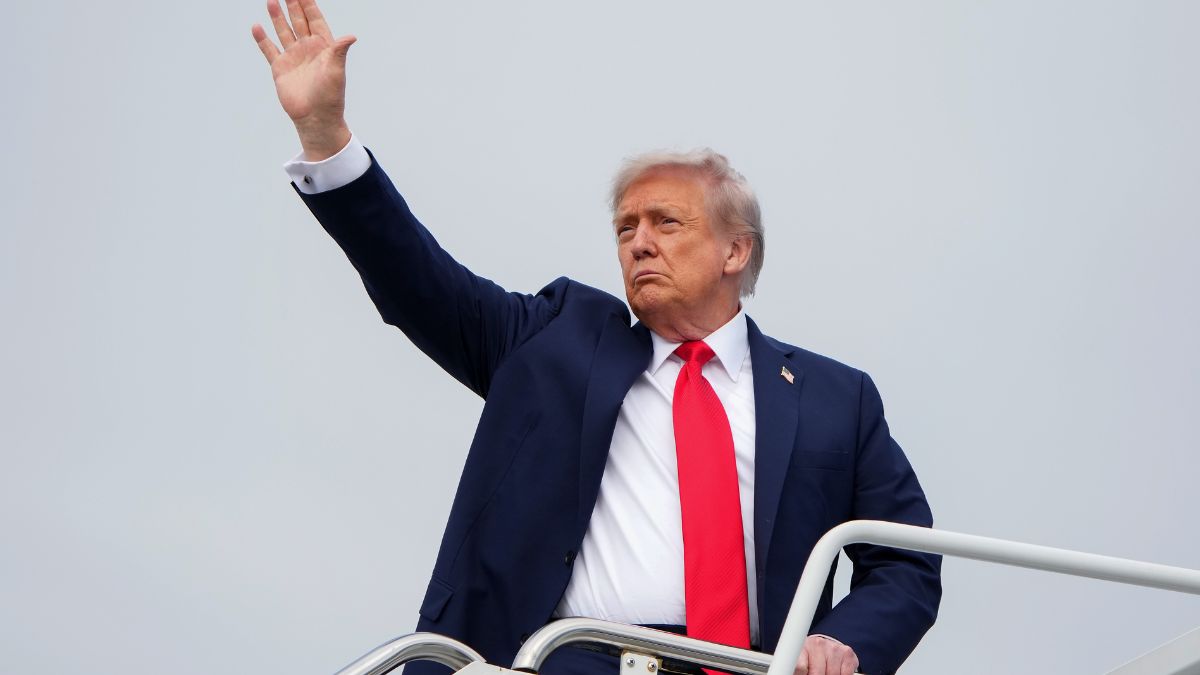
Donald Trump had an animated discussion with a financial news network about his administration’s trade policies. During the interview, he made a remarkable claim regarding an agreement with the European Union. According to the president, the E.U. had offered the United States a generous “gift” of $600 billion.
According to MSNBC, Trump said, “That’s a gift. That’s not like, you know, a loan, by the way. That’s not a loan that, ‘Oh, gee, three years comes up. We have to pay it back.’ There’s nothing to pay back. They gave us $600 billion that we can invest in anything we want.” This is a weird thing to claim, and so when asked for more details, he said, “There are no details. The details are $600 billion to invest in anything I want. Anything. I can do anything I want.”
The bold assertion struck many as odd, particularly since the administration had not released any official information about the trade deal’s specifics. Without the formal document, it was impossible to confirm or deny his dramatic claim. However, it now makes more sense because Trump was not being honest.
Trump’s gift was not a gift at all
The official summary described a shared economic relationship between the U.S. and the E.U., with mutual investments already exceeding a value of five trillion dollars. Within this context, the document stated that European companies were “expected to invest” an additional $600 billion across strategic sectors in the United States over a period lasting until 2028.
Trump: "They gave me $600 billion. And that’s a gift… That’s not a loan… There’s nothing to pay back. They gave us $600 billion that we can invest in anything we want.”
— Justin Wolfers (@JustinWolfers) August 22, 2025
European Union:
Me: “He didn’t get a penny”
White House spox: ”Pointless nitpicking”… pic.twitter.com/HRFM36qp3q
The discrepancy with how the meeting went was immediately obvious. The official document described a future expectation of private sector investment, while the president had described a direct, unconditional monetary gift to the U.S. government that he could freely control. The gap between an “expected” future investment by private European companies and a $600 billion “gift” that could be freely spent was immense. The president’s public description and the official summary of the agreement did not align in any meaningful way. It was a contradiction that required clarification.
In other words, E.U. companies will invest in themselves, but in the United States. It is not going to the American people at all, or the president, or the White House. This is solely to help those businesses thrive in the US. Somehow, E.U. business helping themselves is America first.
When questioned by CNN about the clear difference between the president’s public statement and the official documentation, a White House spokesperson dismissed the line of inquiry. The spokesperson told the news outlet that such questions constituted “pointless nitpicking.”
The White House appeared to be in a difficult position, faced with a boast made by the president that had completely unraveled upon the release of the official framework. The spokesperson’s characterization of a query about a $600 billion sum as “pointless nitpicking” was a remarkable attempt to deflect from a significant factual contradiction. To suggest that a concern for the truth in a matter of such economic magnitude is trivial or pointless shows a profound disregard for facts. The difference between an expected investment by private companies and an outright gift is not a minor detail.







